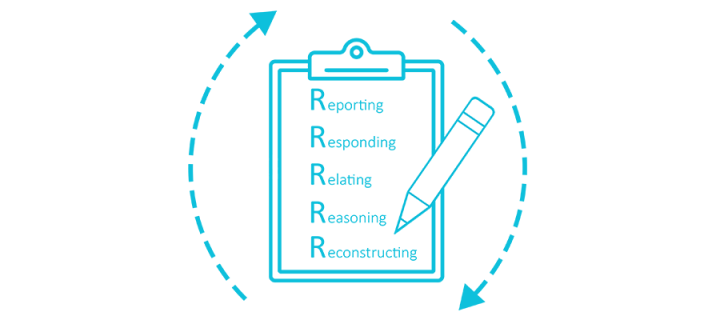
When considering the role of an instructional coach or any kind of professional learning facilitator, it’s important to note how their roles are both similar and dissimilar to that of a typical classroom teacher. Both are educators hoping to assist students in reaching learning goals. A notable difference, however, is the fact that instructional designers/coaches work almost exclusively with experienced adult learners who are already professionals in their fields. In what ways, then, should professional learning be structured to meet the specific cultural and social-emotional needs of adult learners? Furthermore, what role can reflection have in helping to evaluate the impact of a professional learning enterprise with adult learners?
More than any other student population, adult learners enter a classroom environment with a rich reservoir of experience, knowledge, skills, etc. to pull from in their learning. Effective adult education, then, will take each student’s context into account as an active influence in the learning process. This may include considerations for digital literacy levels1, norms and standards in their specific professional fields, and the knowledge gained from previous years of practice in their discipline.
Adult learning also ought to be student-directed and immediately relevant to meaning-making in the student’s world (Merriam, 2017). Self- or student-directed learning focuses on the process by which adults take control of their own learning, and it incorporates how adults set their own learning goals, locate appropriate resources, decide on which learning methods to use, and evaluate their progress (Brookfield, 1995).
Effective adult learning offers opportunities for growth and development within the student’s context, adding value to their life and work, and ultimately giving them new skills, independence, or autonomy (especially in Western cultures) (Merriam, 2017). Adult learners are often interested in “learning how to learn”—in becoming skilled at learning in a range of different situations and through a range of different styles in order to apply that learning in novel situations in their daily lives (Brookfield, 1995). Consequently, adult learning is often more problem-centered than subject-centered, and many adult learners will be keen to know the “so what” factor in any given learning experience (Merriam, 2017).
Jack Mezirow, professor of adult education at Columbia University’s Teachers College and a foundational researcher in andragogy, argues that adult learning should be transformative in nature; it should help adults reassess the structures and assumptions that frame their thinking so that they may, “…think critically for themselves rather than take assumptions supporting a point of view for granted” (Sutherland & Crowther, 2006). Adult learning must provide ample opportunities for critical reflection, for space and time to determine how a student’s learning is actively impacting their worldview and/or their way of being in the world.
Let us pause here in order to focus more time on this essential component of learning theory: critical reflection. A gap can exist between learning a skill and implementing a skill, and that gap usually has something to do with a learner’s individual values or beliefs. A teacher, for example, may learn how to implement a teaching strategy (e.g. annotated reading) during a PD workshop, but this doesn’t mean he/she will necessarily implement the strategy in the classroom unless he/she has come to believe that it is impactful, worthwhile, and compatible with prior knowledge and experience, at least on some level (Marvel, 2018). So how are belief systems shifted in PD enterprises such that adult learners might be more inclined to accept novel ideas into their worldview and professional practice?
Critical reflection can help bridge that gap. Critical reflection or metacognition—the process of thinking about one’s thinking—allows adult learners the time and space to “wrestle” with a new concept in order to, as Sutherland & Crowder (2006) suggest, think critically for themselves and avoid taking assumptions supporting a certain concept for granted. Reflection also creates space to situate learning in the big picture of work-based goals and the lifetime of learning that serves as the backdrop for any newly-acquired concept or skill. It is not a coach’s responsibility to enforce reflection as some kind of assessment activity. Instead, a coach may think of themselves as a guide, helping to create space and structures that allow adult learners to engage in reflection in the first place. Helyer (2015) offers some practical suggestions for what reflection guidance-in-practice might look like, and in my opinion, these are excellent reflective exercises to use at the beginning of a professional learning enterprise:
- Have the learner thoughtfully reflect on a past experience wherein he/she experienced significant learning; what did that look like and feel like? What was the outcome?
- Remind learners that professional activities and the learning process are intertwined, not separate entities; we learn in the midst of action, reflection just helps us make sense of it before, during, and after.
- Have learners reflect not only on their current focus of study but more generally along their life path; have them consider where they are currently situated in terms of career, personal development, and learning.
- Encourage students to acknowledge what they are already good at, and to think critically about where they might have room for improvement; being self-aware is a key component to reflection.
There are many ways to promote reflective exercises. They can be thought, spoken, or written; they can look like mindfulness exercises, journals, or comprehensive reports; they may be oriented towards the individual, pairs, or groups; they may happen before, during, or after an active learning experience take place; they may be linear or cyclical in nature…the list goes on. But no matter the form, all reflective exercises are worthwhile endeavors that help students make sense of their learning and situate their development properly within their life circumstances. Of course, even while acknowledging that reflection can take many different shapes2, it can certainly be helpful to have some kind of structure to act as a guide, especially where coaching is concerned. Consequently, as a final thought in this blog post, I’ll leave you with one possible framework for reflection adapted from the work of Bain et al. (2002) by the University of Edinburgh for their “Reflection Toolkit:” The 5R framework for reflection. This framework helps moves lerners through the key stages of reflecting—usually when reflecting back—with helpful prompt questions to ask along the way:

- Reporting of the context of the experience:
- What happened?
- What are the key aspects of this situation?
- Who was involved?
- What did I do?
- Responding to the experience (observations, feelings, thoughts, etc.)
- How did what happened make me feel?
- What did I think?
- What made me think and feel this way?
- Relating the experience to knowledge and skills you already have
- Have I seen this before?
- What was similar/different then?
- Do I have skills and knowledge to deal with this?
- Reasoning about the significant factors/theory to explain the experience
- What is the most important aspect of this situation and why?
- Is there any theoretical literature that can help me make sense of the situation?
- How do different perspectives (for example personal, as a student or professional) affect the way I understand the situation?
- How would someone who is knowledgeable about these types of situations respond?
- Reconstructing your practice by planning future actions for a similar experience
- How would I need to do this differently in the future?
- What might work and why?
- Are there different options?
- Are my ideas supported by theory?
- Can I make changes to benefit others?
- What might happen if…?
1 Check out the blog post, “Coaching digital immigrants: Considerations for digital equity and inclusion” by higher education instructor Joey Freeman to explore this topic further
2 Additional practical suggestions for metacognitive exercises may be explored here: https://resources.depaul.edu/teaching-commons/teaching-guides/learning-activities/Pages/activities-for-metacognition.aspx
References:
Brookfield, S. (1995). Adult Learning: An Overview. In A. Tuinjman (Ed.) International Encyclopedia of Education. Pergamon Press.
Bain, J.D., Ballantyne, R., Mills, C. & Lester, N.C. (2002). Reflecting on practice: Student teachers’ perspectives. Post Pressed.
Helyer, R. (2015). Learning through reflection: The critical role of reflection in work-based learning (WBL). Journal of Work-Applied Management, 7(1). https://www.emerald.com/insight/content/doi/10.1108/JWAM-10-2015-003/full/html.
Marvel, A. (2018, June 7). The place of reflection in PD. Edutopia. https://www.edutopia.org/article/place-reflection-pd.
Merriam, S. (2017). Adult learning theory: Evolution and future directions. In K. Illeris (Ed.), Contemporary theories of learning: Learning theorists…in their own words (83-96). Routledge.
Sutherland, P. & Crowther, J. (Eds.) (2006). Lifelong learning: Concepts and contexts. Routledge.

The 5R framework for reflection, is very powerful. Personally, I think the reconstructing is the most important one. This kind of reflection should help either coach or coachee continue to grow. And keep getting better. This really is the mean of coaching. Great post.
Thanks for sharing, Katie! I really like the framework you shared too because it’s the construction of knowledge, experience, and emotions together. This has me curious about the links or how intertwined metacognitive activities and social emotional learning might be…